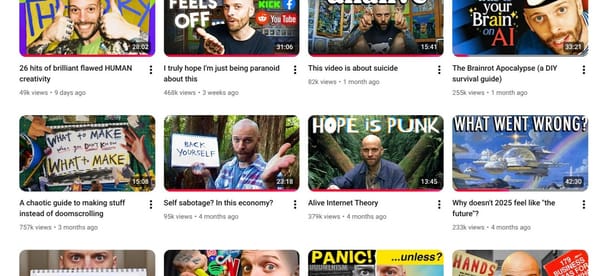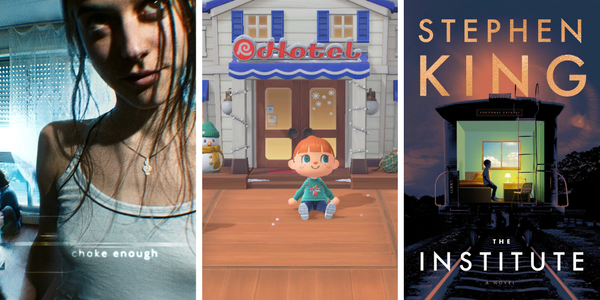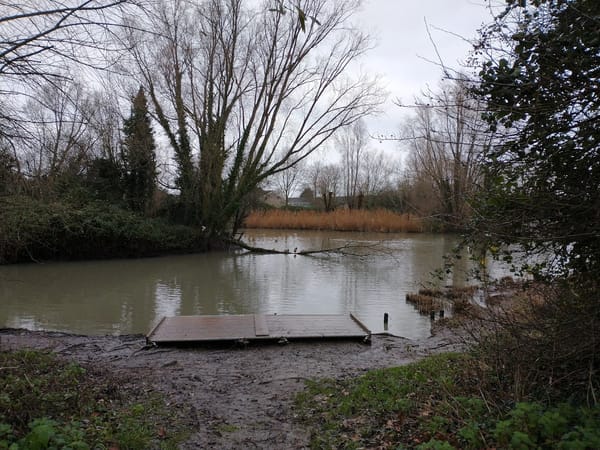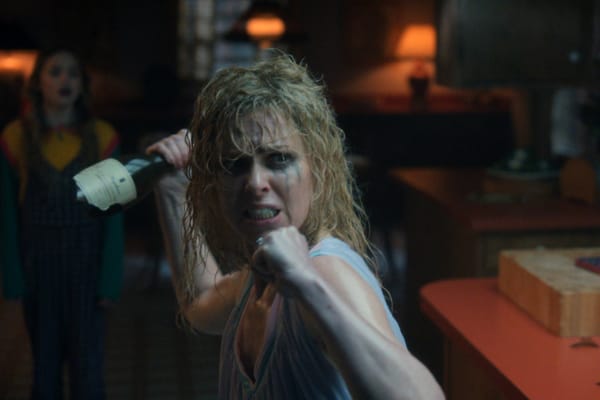Unlearning
on growing up
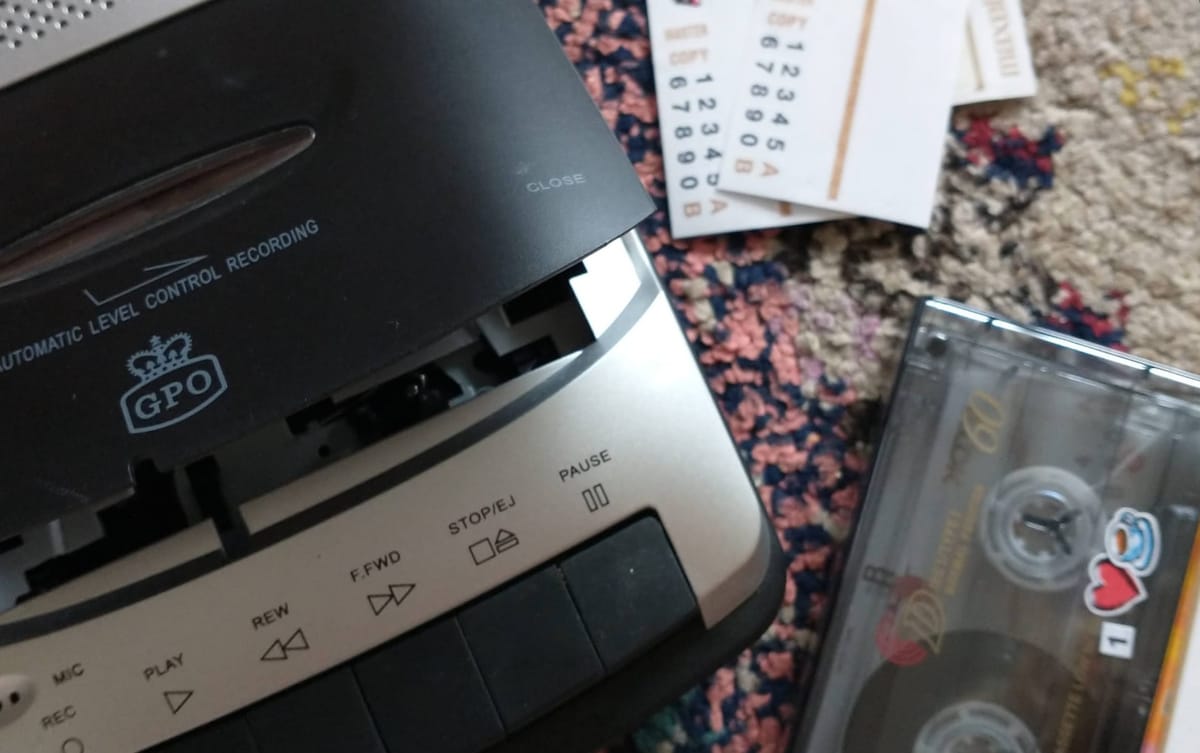
Remember Amy Studt, the British singer-songwriter who enjoyed a brief period of intense fame back in 2002-2004?
Alright. I had forgotten about her. It was TikTok that reminded me. Her song, Misfit, was on repeat for quite a while on my MP3 player when I was a teenager.
Back then I loved earnest, broody boys with guitars and angst. I liked a bit of light, non-threatening rock. My school planner was covered with pictures of Green Day and The Ataris and Blink-182. But I had a secret I was, at the time, willing to take to my grave:
I also loved terrible, shitty pop music.
How could I ever tell anyone that? I was the weird nerdy girl. I wasn't allowed to listen to, you know, Hilary Duff. (I'm sorry, but Come Clean was a banger. Good girl Hilary! Standing in the rain! Suggestively singing the line 'I'm coming' right at the climax, which was extremely dodgy given that they used to play it on the Disney Channel!)
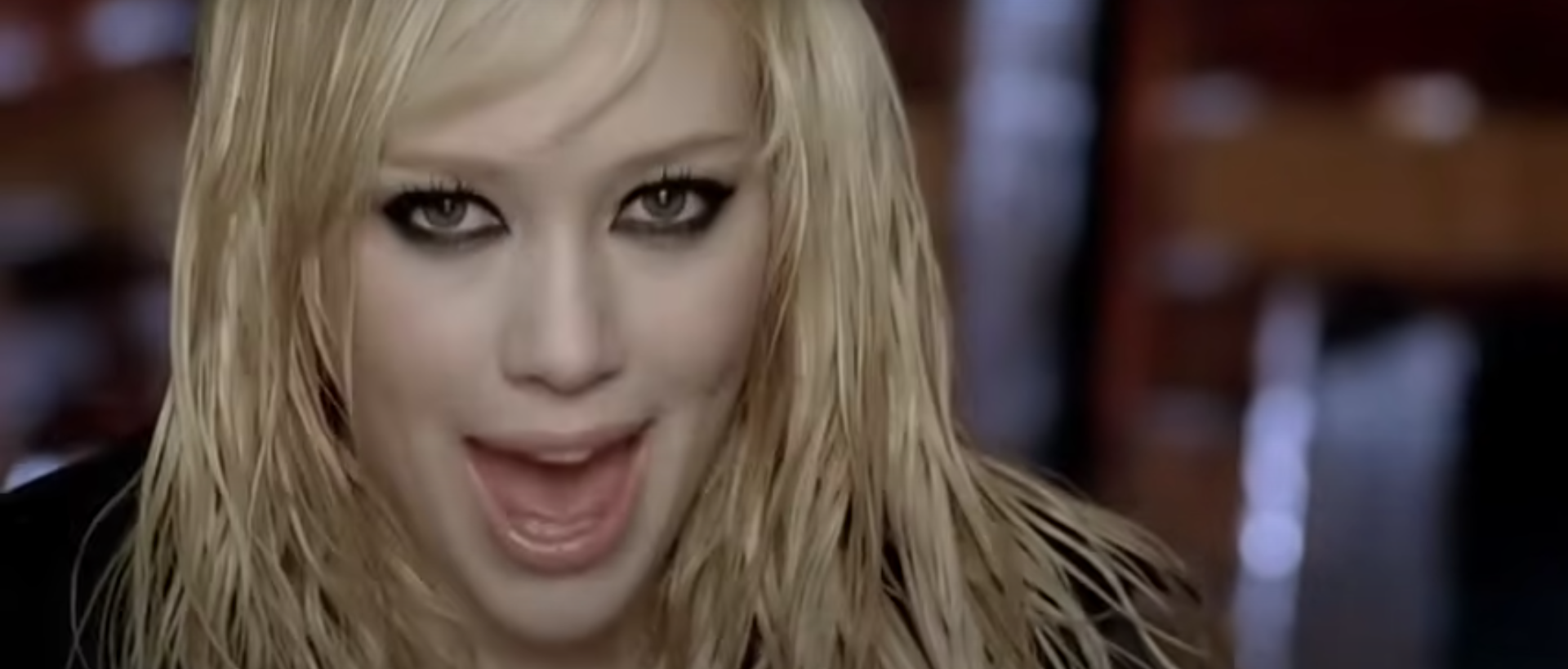
So I pretended I didn't like pop music. But I did. And I do.
I kept my Limewire library a closely guarded secret. I would not, under any circumstances, let a friend share my headphones unless I wanted to play a specific song. (Do you remember doing this? Once my friend Jon wanted to introduce me to 'this new band, Fall Out Boy' and we listened to Sugar We're Going Down on repeat while walking laps around the village I lived in. I miss those times, when sharing things you loved was an actual effort so everyone took it really seriously.) What if someone found out I had sandwiched Lady Marmalade in between the Red Hot Chilli Peppers and the Goo Goo Dolls? I had a reputation to keep, damn it. I had standards.
Sorry. Back to Amy Studt. Here she is:
NGL I'd wear those earrings. Dangly earrings are the only redeemable thing about the early '00s
I don't expect you to actually watch this so I'll give you the gist: Amy Studt gets pushed around by a bunch of girls in pink. They relentlessly chase her, presumably with murderous intent, until she is forced to take refuge on top of a wardrobe. Eventually, some goth girls and the pink girls get into an atrocious dance-off while a bunch of grown men scream at them from a passing car. And there's our Amy, dancing all alone: she's neither a goth or a girly girl. She's unique.
Choice lyrics to this song include:
So you think you got it all worked out?
You got your hotpants on
You got your arse right out
and
All you girls, you look and flip your hair
And wonder why I'm still here, well
You're superficial, I'm a misfit
But baby, that's okay
I liked this song because of the lyrics: I couldn't like what the popular girls liked. But I wasn't quite hardcore enough to be a goth. I liked to pretend I was above it all, somewhere on another plane of existence. I dug out weird little songs by weird little bands and I made sure that everyone knew that I was different, like I didn't go to bed at night secretly daydreaming about wearing low-rise jeans and Playboy bunny tops like the other girls and somehow looking good in them. Like I didn't want to have my arse right out.
So what's Amy doing now that she's not, presumably, still starring in music videos as a pretend American teenager wearing sparkly earrings? I listened to her 2019 album Happiest Girl in the Universe having never explored Studt beyond 'Misfit', and I found a beautiful, raw, and sometimes pretty dark album. Let the Music Play and Sleepwalker are brilliant, but what struck me were the lyrics to this song:
It will not stop me
It will not quash me
It will not hush me
And I'll live violently with love
Without your commentary
Without your industry
And I'll live violently with love
With love, with love
I dug around for interviews with Studt. She seems to be pretty complimentary about her experience with the music industry, even after being rocketed to sudden fame as a teenager. She was signed to Polydor at fourteen years old, only to be dropped by them just four years later. What followed was a series of mental and physical health challenges including depression and a long recovery period.
'I paid my dues, I played it your way', she sings on Let The Music Play. And I can't help but be curious about her mindset back then. I imagine what my song lyrics would have looked like at fourteen, fifteen, sixteen. I wonder how much slut shaming I would have done if I could have written songs. I wonder how many of us spent our teen years being told that to be girly is to be less interesting, to like 'normal' things was to be boring, to have any kind of sexual agency or expression is slutty and disgraceful and wrong.
I don't think I ever questioned how easily I thought of the other girls as sluts while also feeling deep, burning shame for everything I ever did in darkened rooms at house parties. I don't think I ever connected the two, really. I was too immature to consider it. And the early 2000s were - as I've said many times - a crap time to be a teenage girl. I think of Amy, reconsidering how she was treated, reckoning with the narratives she was fed and contributed to. I wonder how many of us, in our thirties, are now starting to set it all on fire. Just burn the whole fucking thing to the ground and make something better from the ashes.

You know when you really connect with someone, and you find yourself sharing something that will haunt you slightly for years to come? That happened to me. It must have been ten years ago. My daughter was a giggly little toddler, and my son hadn't arrived yet. I got into a conversation with someone I knew well at the time. I told the truth, which was this:
When other women are successful, I feel this stab of resentment, because it makes me feel like I'm not doing enough.
It was a big confession at the time because I was a baby feminist and I felt it was important to uplift other women, to support them, to genuinely root for them, and feel joy at their success. But along with being a baby feminist, I was also deeply self-conscious. My self-esteem wasn't great, and I was struggling to own my decision to be a stay-at-home Mum. Not because I didn't enjoy it (I actually loved it), but because I felt inferior. I was surrounded by women who were handling motherhood, studying, working, or running their own businesses: they were doing so much with their time. I had chosen, instead, to pause for a while.
What was I doing?
Did I have any worth in the eyes of these other women?
If they were able to handle a high-powered career or a passion project alongside motherhood, what did that say about me?
For some reason, we like to pit women against each other. Put two famous women in any situation and the media will try to turn them into enemies. It's a weird little thing I had learned, somewhere in my head: other women are competition, the standard I should hold to. I learned it in my teen years and I held it way into my mid-twenties.
And I've unlearned that. That conversation shifted something in me; I realised I needed to change. Now, I feel a true spark of joy when I hear of another woman doing something well. I'm happy for them as my first, instinctive reaction. If someone does something that is way beyond my capacity, I don't think oh no, I feel terrible. Instead, I think of Amy Poehler's saying: good for her, not for me.

Which leads me to Hayley Williams (as a lot of things do nowadays). Sometimes I wonder who the mystery slutty girl is from Misery Business. Maybe she never existed. Maybe she was made up, an imaginary threat to fuel an angry song. I don't even need to tell you the lyrics of Misery Business. They're so infamous that Paramore refused to play the song live for a while. That's how uncomfortable it felt, to sing such lines as:
Once a whore, you're nothing more
I'm sorry, that'll never change
Misery Business ties into the 'arse right out' slut shaming of Misfit, but it's really a song about a fierce competition between two girls over (you guessed it!) a boy. Looking back, there were probably boys wearing stinky old beanie hats I would have happily fought another girl over (although to be clear, not a physical fight: I was small and an absolute weed).
I like that Paramore play Misery Business live now. It's a good chance to have a little discussion about it (as you can see in the video above). And it's a banger. But I also like the fact that someone who was, if I'm being a bit simplistic, kind of an icon of the 'not-like-the-other-girls-girl' has evolved far beyond that.
I love her solo albums. There's a song on Petals for Armor called Roses/Lotus/Violet/Iris that goes like this:
I have seen your body
And I have seen your beauty
They are separate things
Pretty, pretty, pretty things
Which strikes me as being a world away from the 'once a whore, you're nothing more' days.
And I will not compare
Other beauty to mine
And I will not become
A thorn in my own side
And I think this is the thing. I've been talking with friends about the lasting impacts of purity culture and how this made being a young woman needlessly complicated, but I think this is a general thing that a lot of people can relate to. We were taught so much nonsense as teenagers. Whether that was coming from our peers, the media, our church leaders, or our parents. So much bullshit about what it means to be a woman: that we have to judge each other to police each other, or to see each other as a threat.
Who can blame teenage Amy Studt or Hayley Williams for lyrics they wrote when they were teenagers? How could they have ever been any other way? Who can blame teenage me, bullied and misunderstood, left behind and furious, for holding other girls to a standard I didn't want to hold myself to?
A big part of my own personal growth over the past year or so is learning to make peace with past versions of myself, even if those past versions were incredibly stupid. To extend to myself the same forgiveness I'd probably hand over to someone else in a heartbeat. We didn't know any better, back then. We just didn't.
But this:
And I will not become
A thorn in my own side
And I will not return
To where I once was
At some point you need to take responsibility. For me, this happened all those years ago, in that probable overshare I did at the end of a long evening. The responsibility of it hit me all at once. At some point, you're the one perpetuating the stupid messages you learned to yourself, over and over again. You're being the thorn in your own side. I wasn't a kid anymore. Nobody was forcing me to see other women as a threat. I was doing it to myself.
And that's not to say it's not an occasional temptation. 'And I will not return to where I once was' suggests that Williams gets this, too. The thing about being a woman in your mid-thirties is that you suddenly start ageing and it's a weird and slightly unsettling thing. Suddenly there's this huge wave of beautiful young women being massively successful in almost every area of life and it's tempting to feel a bit shit just by comparison. But no matter how tempting those old thought patterns are, I refuse to return to them. I won't. They belong to the version of me I shut the door on for the last time just recently.

You know how I'm tired all the time? I'm still so glad to be in my mid-thirties. Everybody around me is maturing and ditching the toxic things that have held them back for so long. It gives me life.
More video game stuff next week, probably. I haven't had time to play any games outside of review games (which I can't talk about yet). I've only been listening to music while I potter around opening boxes. But I will play more games soon. So until then, have a good week <3


